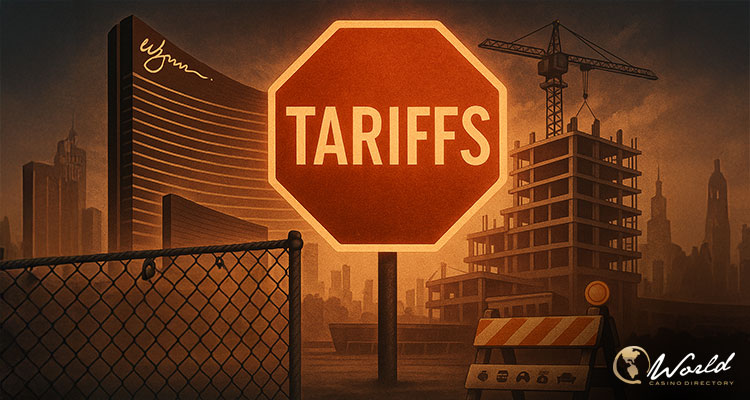Wynn Resorts has opted to delay a series of capital expenditure projects valued at approximately $375 million, including the highly anticipated remodel of its Encore tower in Las Vegas. CEO Craig Billings made the announcement during the company’s Q1 2025 earnings call, attributing the decision to ongoing uncertainty around U.S. tariffs, which have introduced cost unpredictability for construction-related materials.
Although the operational cost effects of tariffs—particularly on food and beverage—are currently considered “low and entirely manageable,” Billings said capital expenditures pose a different challenge. “The current tariff rates have driven us to delay about $375 million of cap-ex projects, including the Encore Tower remodel,” he explained, according to Las Vegas Review-Journal. “Once tariff rates have settled, we will thoroughly re-spec and re-source the most severely affected items.”
Furniture, fixtures, and timing woes:
Julie Cameron Doe, Wynn’s CFO, emphasized that the projects are not being canceled but rescheduled. The complexity of re-specifying key materials—such as furniture and fixtures—contributes significantly to the delay. “Figuring out the revised timing is not trivial because when we re-spec pieces, particularly furniture and fixtures, it’s not like we’re flipping through a catalog,” Billings added. “To the extent that we re-spec a single piece of furniture, we’re delayed by x number of months.”
Wynn had originally included these upgrades in its year-end financial planning, with projects covering not only the Encore remodel but also enhancements to the high-limit table games area, a new Golf Course Club House & Grill, and a Zero Bond club.
Wynn Resorts reported net income of $277 million, or $2.29 per share, on revenue of $1.84 billion for Q1 2025, down from $729.2 million, or $6.19 per share, in Q1 2024—a period boosted by Super Bowl 58 in Las Vegas. Billings noted that adjusted for the Super Bowl, performance across several core segments showed year-over-year improvement.
“Our slot business continues to be a bright spot as the investments we have made in our premium slot areas and in the team have helped maintain our premium positioning,” said Billings. Metrics such as drop, handle, non-gaming revenues, and revenue per available room (RevPAR) were all reportedly up compared to the prior year.
Wynn’s properties in Macau saw strong performance during China’s recent Golden Week holiday, with the new Gourmet Pavilion at Wynn Palace adding capacity for 2,400 daily covers. Billings described the environment as “fiercely competitive,” especially in the premium mass segment, but said the group continues to leverage strengths in service, product quality, and tech-enhanced marketing to stay ahead.
“Golden Week, which just ended, saw mass drop up from last year and full occupancy in the hotels,” he said, while noting that customer activity in Macau is closely monitored on a daily basis due to short booking windows.
Global development strategy and Japan outlook:
Meanwhile, construction on Wynn Al Marjan Island in the UAE has reached the 47th floor, with interior fit-out and beachside poolscape development underway. The company reaffirmed its target to open in early 2027 and expects the property to be uniquely positioned in a regional gaming market that could generate over $5 billion in gross gaming revenue.
Wynn is also actively eyeing opportunities in Thailand and New York, although concerns remain about the potential impact of online gambling on physical casino development in the latter.
Japan, once a frontrunner in Wynn’s international expansion plans, remains on the radar but with caveats. “We will always look at any gateway city where meaningful capital can be deployed and where we think the Wynn brand resonates, so Japan fits that bill,” Billings said. However, he pointed out that the country’s licensing and ownership structure remains a barrier. “It’s got to be right, and the setup has to be right for us.”
The company previously shut down its office in Yokohama in 2020 following a halt in Japan’s initial IR licensing round, and it remains cautious about any reentry—even as reports suggest a potential second round of bids may be launched before 2027.
Although international tourism to Las Vegas has not yet returned to pre-pandemic levels, Billings noted that the company has been able to fill demand with a high-spending domestic clientele. “We can’t be naive. There’s uncertainty out there,” he said, adding, “Things look fine as of now.”


